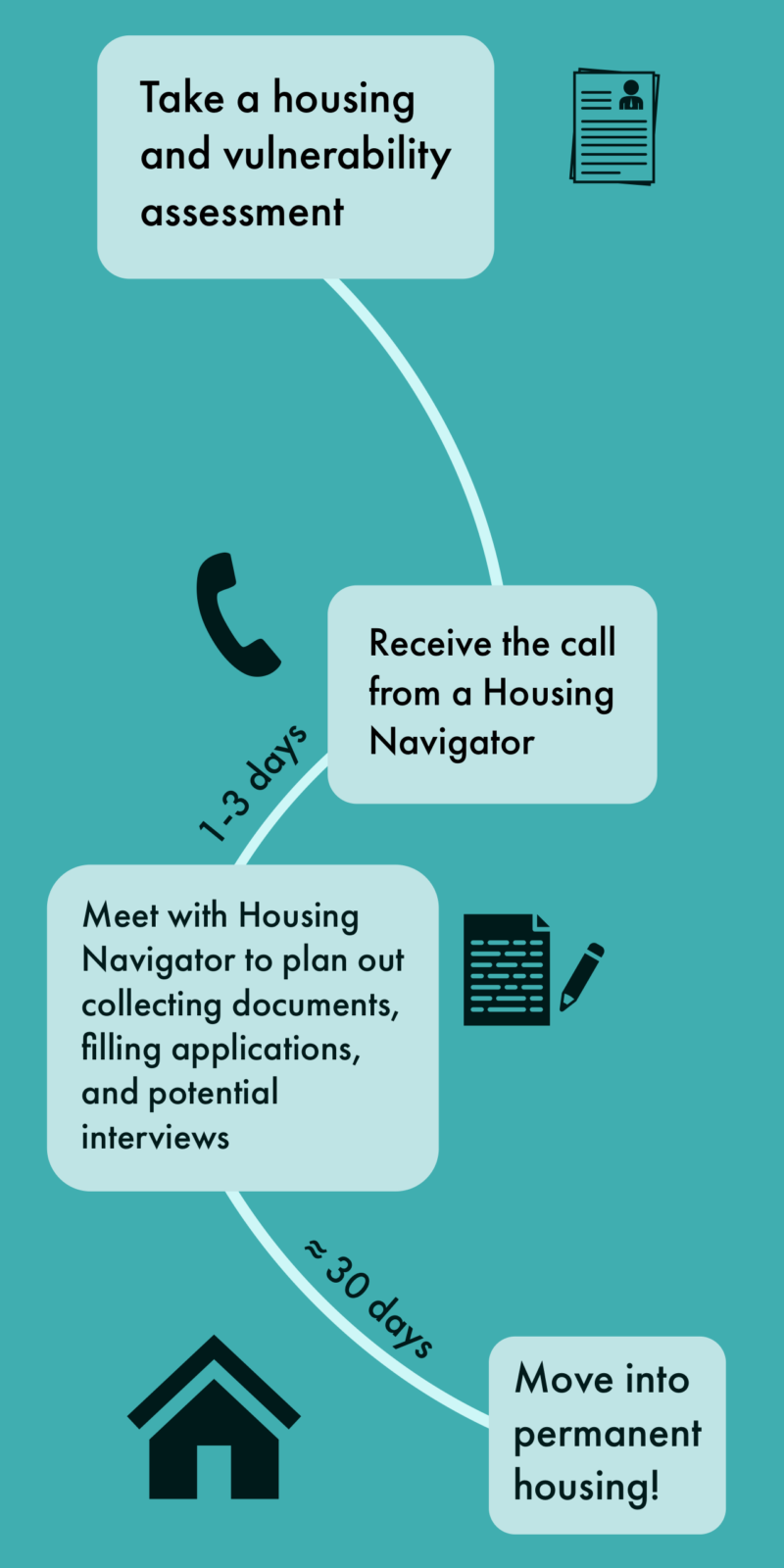February 11, 2021 | 4 min read
In Chicago there are more than 5,500 individuals experiencing homelessness on a given day who are waiting to be matched with housing [1]. To qualify for a limited pool of housing and resources, households of every size are prioritized by their level of vulnerability using an assessment that tracks disabilities, health conditions, and adverse circumstances like domestic violence or chronic homelessness. Once a family or individual receives a call from a Facing Forward Housing Navigator, they are one step closer to ending their homelessness. The journey to access housing is arduous and having the support of a Housing Navigator can make all the difference.
“Once you get that phone call, within about 30 days you're going to be housed. That’s a great phone call to make.”

The Call
Within just three days of being contacted, households that have waited months or even years to reach the top of the prioritization list meet with mobile Housing Navigators to discuss next steps.
“Once you get that phone call, within about 30 days you’re going to be housed. That’s a great phone call to make,” says Edith Davis, Program Manager for Housing Navigation at Facing Forward to End Homelessness.
Navigators meet with new clients to support their unique journey to housing. Together they map out tasks like obtaining necessary documentation (IDs, children’s birth certificates, disability documents, social security cards) and background checks while setting up apartment viewing appointments and interviews along the way. Navigators work closely with clients to ensure a quick and smooth transition to housing.
Every Step of the Way
At Facing Forward, we understand that each person has faced their own set of challenges – homelessness, community violence, barriers to healthcare access, racism, and more. Because of these experiences of trauma and discrimination, building trust is an essential part of a Housing Navigator’s work.
Our Housing Navigators strive to form strong relationships and meaningful bonds with clients through a trauma-informed approach, accountability, and understanding. They get to know clients on a personal level and provide connections to mental health services, education supports, parenting resources, and more during their housing search.
"Sometimes a family may come with nothing but the clothes on their back."
“There is more that we would like to do in regard to support but we’re limited in how we can use some of our funds. Sometimes a family may come with nothing but the clothes on their back,” Edith says. In addition to helping families and individuals move into their new apartments, Navigators will often assist with obtaining furniture and other household essentials when funding and resources are available.
Housing Navigation is a proven and effective program to end generational cycles of homelessness in Chicago. As the inclement weather continues, Covid-19 persists, and waitlists remain in the thousands, we aim to help more of our neighbors stay safe and healthy by helping them move into their new homes.
In 2020, Facing Forward served 141 individuals through our Housing Navigation efforts alone. Your support gives us the ability to make even more life-changing calls.
Donate today and become a part of these life-changing efforts.
Source: [1] All Chicago HMIS Data 2019

